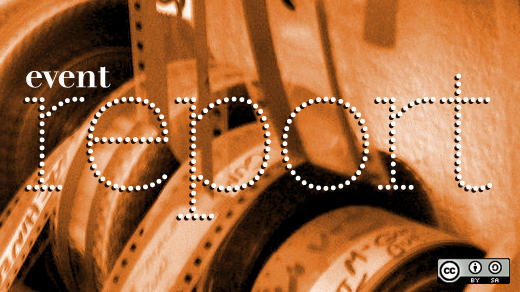I recently came back from the USENIX Large Installation System Administration (LISA) conference held in San Diego, California, and it was an interesting experience.
I was at LISA to present a paper I had written as part of my Ph.D. studies, but LISA is not really what one would consider an "academic" conference. In fact, many of the folks representing universities were from their IT departments, not their faculty. The main focus of the conference is instead on the training sessions and workshops held throughout the week. I was rather concerned that I would have a hard time connecting with anyone at the conference, since I am most definitely an academic, and even lean more towards the developer side than a system administrator.
However, I quickly discovered that that would not be much of an issue, because the common ground that I had with many of the attendees was in the realm of my field of technology education. Education has become a major theme at LISA, as many of the self-trained system administrators feel that the classical education offered by colleges and universities doesn't adequately prepare students for a career in system administration, or even inform them that such a career is possible. As such, enterprising members of the system administration community have taken it upon themselves to create these opportunities—one such entity being LOPSA, a professional association for system administrators dedicated to advancing the system administration profession by offering support to potential practitioners. Another initiative, including members of LOPSA and some System Administrators from Etsy, have launched a collaborative and Open Source MOOC-like offering called OpsSchool, which is geared towards building a curriculum and providing content to help teach the craft and create an online community around learning when a physical interest group may not have the critical mass to have an impact.
This focus on education, outreach, and the human factors showed that the attendees at this conference were not simply concerned with the technological problems and geeky solutions they found for them, but there were still some very inspiring presentations and panel discussions on the technology itself that I could follow and learn from. Vint Cerf gave the LISA keynote and talked about how the Internet is experiencing an explosion of connected devices from mobile to sensors to smart grid technologies. Things that used to be done over dedicated channels are now done over IP. There was a panel on disruptive technology, and on how mobile devices, massive parallelization, and cloud computing are changing some of the assumptions about how we design and develop for our systems. We talked about how we've hit the ceilings of network capabilities as dictated by the very laws of physics, requiring us to start optimizing in the constraints that we are facing. However, it seems that the content discussed at these sessions quickly faded due to the volume of wisdom I collected in the hallway track, over Twitter, and on IRC.
As amazing as these presentations were, they often served as conversation starters rather than the main attractions. When it comes down to it, the reason why we go to conferences is to interact with the people in the community. Whether we are academics or practitioners, being able to draw from the energy of people who are passionate about learning new skills for themselves or sharing those skills with others is what makes a conference worth the trip. It's not really about fitting in so much as it is about being around a community that makes you feel welcome, and that's what LISA really has going for it.







2 Comments